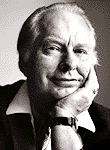
Understanding Scientology
 L.Ron Hubbard (born 1911 in Nebraska), a millionaire explorer and retired U.S. naval officer, founded the Church of Scientology. His ideas are being strongly promoted through his extensive science fiction works (begun in the 1930s).
L.Ron Hubbard (born 1911 in Nebraska), a millionaire explorer and retired U.S. naval officer, founded the Church of Scientology. His ideas are being strongly promoted through his extensive science fiction works (begun in the 1930s).
Scientology teaches what it calls "an applied religious philosophy" aiming at "spiritual recovery and the increase of individual ability." The methods of Scientology (originally called "Dianetics") are claimed to be "technological," and make extensive use of apparatus, elaborate types of classification, and an involved - frequently cryptic - quasi-scientific language in expounding the stages by which the individual may progress, under close guidance, towards total self-determination. Its basic concept is "survival", and Scientology teaches the techniques by which, it claims, the individual may "survive" most effectively.
Although passing reference is sometimes made to, for instance, "Supreme Being, the ultimate Creator, and God, when so meant" (the implications of the last clause are obscure), Scientology maintains that "the human mind and inventions of the human mind are capable of resolving any and all problems which can be sensed, measured, or experienced directly or indirectly." Man is to be his own saviour.
Scientology denies the existence of absolute good and absolute evil in the world of matter, energy, space and time. It holds that "that which is good for an organism may be defined as that which promotes the survival of that organism."
The authoritarian teachings and techniques of Scientology have caused controversy in many countries. In 1963 the Victorian Government appointed a Board of Enquiry into Scientology. Its report, published in 1965 after 165 days of investigation, includes this sentence, "Scientology is evil; its techniques evil; its practice a serious threat to the community, medically, morally, and socially; and its adherents sadly deluded and often mentally ill" (Report p. 1). It concluded, "If there could be detected in this Report a note of unrelieved denunciation of scientology, it is because the evidence has shown its theories to be fantastic and impossible, its principles perverted and ill-founded, and its techniques debased and harmful. Scientology is a delusional belief system, based on fiction and fallacies and propagated by falsehood and deception" (p. 160).
In late 1966 the Scientologists replied by widely circulating a petition to the Victorian Legislature, arguing that they are a true religion and that, constitutionally, they could not be banned. Among other things, they presented as their distinctives, "Sin is composed of lies and hidden actions and is therefore untruth. The electrometer (or E-meter as it is commonly called) is used to disclose truth to the individual who is seeking help and guidance and thus free him spiritually. Only in this way can Man's spiritual self be regained. A religious confessional fails only when not guided by a modern instrument such as the E-meter, which is essential in the worship of Scientology as only with its use can the supplicant know when he has fully unburdened himself" ( Petition p. 3).
In 1964 Judge Breckenridge of the Los Angeles Supreme Court gave the opinion, "The organisation clearly is schizophrenic and paranoid, and this bizarre combination seems to be a reflection of its founder... The evidence portrays a man who has been virtually a pathological liar when it comes to his history, background and achievements. The writings and documents in evidence additionally reflect on his egoism, greed, avarice, lust for power and vindictveness and aggressiveness against persons perceived by him to be disloyal or hostile" (quoted in Los Angeles Times June 22, 1984).
© Peter J Blackburn, 1991,1999. This material was originally prepared for Antioch School. Permission is given for the printing and use of this material by congregations and individuals.